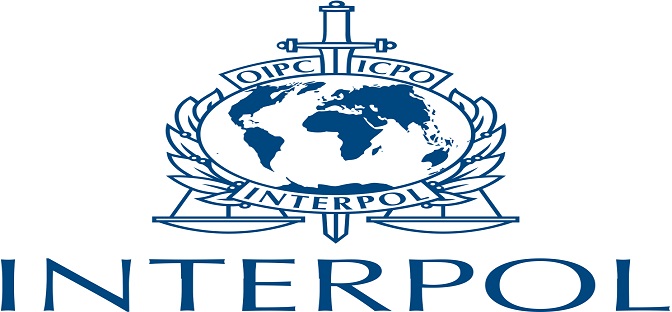News
Revisiting The Electricity Question In Nigeria

The question as to whether the Nigeria’s tech ecosystem can truly develop without steady power supply has always been agitating my mind.
This question keeps coming up because of the epileptic power supply that has consistently been the lot of the citizens of this country for way over 5 decades now. The epileptic power supply has constantly left most of our small, medium and large scale businesses in Nigeria in dire straits. This is because they power their businesses with generators which run on fuel and this shoots up the operating/running expenses of these businesses.
It is no longer news that many industries in Nigeria have either closed shop and relocated to other countries that have relatively stable electricity or disengage a number of their staff and increased the work load of those remaining in a bid to reduce operating/running cost.
This is happening in a country where we already have a very high rate of unemployment. The news gets worse when the reality stares us in the face that, unless the government, through the NERC and the Discos, Gencos and the Transmission companies gets their acts together and cooperate, coordinate and synergize to give us the much required stable electricity supply, more businesses are likely to die, be irrespective of the field of endeavour.
It is worthy to note that, without steady power supply, there simply cannot be any significant technological advancement or innovation and in the same vein, no section of the power ecosystem, (generation, transmission, distribution, billing, the regulator or what have you), can work effectively and efficiently without inputting modern technology. They are all partners in progress.
In many climes, people in government have come to recognize that stable electricity supply is the fulcrum on which many businesses depend, to enable them deliver optimally at relatively cheaper prices. Electricity is also seen as the chief driver of technological innovations that has given birth to the Internet of Things.
This has now turned the universe into a global village through internet connectivity. The Internet of Things is set to take the world by the storm in the next two or three years’ time, when your household gadgets, such as your refrigerator, electronic doors and gates, Television, Microwaves, etc., will be interconnected.
Without stable electricity, I do not see how we will be able to cope in Nigeria in this regards as connectivity is dependent on the availability of electricity supply.
Today, within the twinkling of an eye, you can transact and close business deals with anyone, anywhere in the world, without leaving the comfort of your home through an internet-connected computer device, powered by electricity.
Technology and its variants of innovations, of which electricity is a major one, I have always maintained, has come to make our daily living a lot easier.
There is no doubt that the high unemployment rate we are presently facing in Nigeria can be drastically reduced with relatively stable supply of electricity.
Many people will find their employment bearing in what is usually called the blue collar job sector of the economy, which is capable of accommodating millions of employable Nigerians. Name it; Welding workshops, Barbing saloons, Hair dressing saloons, Internet Café, Fashion designers, Cold room operators, etc., will all have stable jobs and move away from riding bikes, popularly referred to as Okada, with grave implications to their health, if they have access to stable electricity to run their businesses seamlessly.
Also, and importantly too, manufacturing will once again boom in Nigeria as factories will be able to run their machines at cheaper electricity rates compared to the exorbitant cost of running them presently on diesel generators, if the issue of electricity is fixed. This means that there will be a reduction in the cost of production.
A reduction in the cost of production will drive the prices of produced goods down, thus, making them affordable to the average Nigerian.
Further benefits of fixing the electricity issue in Nigeria is that, as reduction in production costs drives down prices, our products will be able to compete for export, especially, in our immediate African market.
This can, indeed, be the beginning of Nigeria earning serious foreign exchange from exports. Exports earnings can improve the strength of the Naira against stronger currencies like the Dollar and save us from the present foreign exchange imbroglio we find ourselves. Nigerians can then start to breathe a sigh of relieve.
One of the reasons adduced for the increase in electricity tariff is that the Disco’s need to gather more funds to invest in old equipment. One is tempted to ask; what did the Disco’s thought they were buying into when they were bidding for the aspect of PHCN which they bought?
Did they inspect the equipment they were buying at all? Did they price down the old equipment they were buying into when they bought, knowing that they have to invest in better equipment? Why should it now be the electricity consumers that should indirectly be funding the Fixed Asset side of the Balance Sheet of the Disco’s by financing their equipment purchase through the increase in tariffs? All these questions are begging for answers.
The truth is that no nation can be truly economically viable if its electricity sector is in the kind of crisis that ours is in Nigeria. There is the need to really deregulate the electricity sector in Nigeria instead of removing it from the government’s bureaucratic shackles and placing it on the laps of investors with oligarchic tendencies.
The issue of alternative sources of electricity should also not be discountenanced in seeking to solve the electricity crisis in Nigeria. Technology has provided various other options, such as wind, solar and many more. The government should look at each community and see how best they can be helped to benefit from these alternative sources of electricity, thus, by-passing the Discos.
We expect to see positive changes in the direction of improving the supply of electricity with the supply of prepaid meters to every consumer of electricity in the nearest future, otherwise, our Tech ecosystem and other businesses will keep crawling.
CFA is the Founder, www.CFAtech.ng & Co-producer/Presenter,Tech Trends on Channels Television
News
ABoICT Lecture 2026 to Focus on Impact of AI, IoT on Business Operational Efficiency

Board and management of Communication Week Media Limited, publishers of Nigeria CommunicationsWeek, at the weekend announced that this year’s Africa’s Beacon of ICT Merit and Leadership lecture will focus on Impact of AI and IoT on business operational efficiency.

Africa’s Beacon of ICT Merit and Leadership lecture, widely regarded as the most prestigious annual event available in the ICT industry in Nigeria is in its 17th year.
The lecture holds on May 30, 2026 at Oriental Hotel Lekki, Lagos, according Ken Nwogbo, editor-in-chief of
Nigeria CommunicationsWeek the organizers of the event.
He said that this year’s event “is digital transformation edition” to recognise and celebrate organizations and individuals in the ICT industry that have impacted in digital transformation of the economy.
“Most of these organizations and individuals have consistently being voted by our readers as leaders in their areas of operations and we have decided to reward them in this special edition, tag: ‘Digital Transformation Edition 2026’ he said,”.
He added that, Digital transformation, driven by AI and IoT, will fundamentally boosts business operational efficiency by automating complex tasks, enabling real-time data analysis, and reducing costs.
“IoT technology optimizes resources, predict maintenance needs, and enhance decision- making, allowing companies to streamline workflows and improve productivity across sectors like manufacturing and logistics.
“It is an emerging technology that has impacted lifestyles and has changed the way we think and act, and the way we interact with each other.
It has also changed the way we work as it enables very large-scale monitoring, control, and automation, and has impacted the digital transformation of organizations in different industries”, he said.
According to him, “the transformative power of Artificial Intelligence exists as a bringing force in organizational communication. AI tools perform repetitive jobs, deliver simultaneous translations, and register team communication patterns, which lead to better understanding of group interactions. AI chatbots help manage customer support inquiries thus enabling staff members to dedicate their efforts toward complex work activities”.
The Africa’s Beacon of ICT Merit and Leadership Distinguished (ABoICT Lecture 2026) is designed to explore efforts to put Nigeria on the global Information and Communications Technologies map.
The lecture series however is reserved for distinguished achievers in the ICT sector.
Past lecturers included Dr. Ernest Ndukwe, then executive vice chairman, Nigeria Communications Commission (NCC); Uche Orji, managing director/chief executive officer, Nigeria Sovereign Investment Authority (NSIA); Biodu Omoniyi, Managing Director/CEO, VDT Communications; Ayotunde Coker, former Managing Director, Rack Centre Limited; Prof. Adewale Obadare, chief visionary officer, Digital Encode; Dr. Oluseyi Akindeinde, founder,
Hyperspace & NeuraL AI and John Obaro, CEO and founder of Systemspecs; Prof. Isa Pantanmi, former minister of Communications and Digital Economy; among others.
News
AI-Driven Memory Chip Fuels Global Phone Price Surge

Global technology markets are entering a new phase of strain as surging memory chip prices intensify the ongoing semiconductor shortage. For Nigeria, the ripple effects could translate into a 15 – 20 per cent increase in phone price levels if supply pressures persist into the next quarter.

While attention has largely focused on advanced AI processors, the sharpest escalation is occurring in memory chips, specifically DRAM (Dynamic Random Access Memory) and NAND (Flash Memory), which are essential to smartphones, PCs, and vehicles.
According to Bloomberg data, spot prices for DRAM have surged more than 600 percent in recent months. NAND prices have also climbed as artificial intelligence infrastructure expands global storage demand.
This shift reflects a structural realignment rather than a short-term disruption.
Massive AI infrastructure investments led by hyperscalers such as Amazon have redirected fabrication capacity toward high-bandwidth memory (HBM), a critical component for AI accelerators. This shift has tightened supply for conventional memory used in consumer devices.
Market analysts now describe the situation as a memory “supercycle,” breaking the industry’s traditional boom-and-bust pattern. Historically, memory cycles lasted three to four years. According to Jian Shi Cortesi of GAM Investment Management, the current cycle has already exceeded previous ones “both in length and magnitude,” with little evidence of demand momentum softening.
Financial markets reflect the divide. A Bloomberg gauge of global consumer electronics makers has fallen roughly 10 per cent since late September, while a basket of memory manufacturers has surged about 160 per cent over the same period. Shares of SK Hynix, a key high-bandwidth memory supplier to Nvidia, have climbed more than 150 per cent.
By contrast, downstream manufacturers reliant on affordable memory supplies are under pressure. Nintendo has warned of margin compression linked to shortages. Qualcomm shares declined after signaling memory constraints that could limit phone production. PC makers such as Lenovo and Dell have also retreated from recent peaks amid concerns that rising chip costs could dampen demand.
The divergence underscores a widening gap between component producers and device assemblers.
Memory is central to modern smartphone performance. Higher DRAM and NAND capacities power AI-enabled features, high-resolution imaging, and multitasking capabilities. Rising memory costs, therefore, feed directly into the bill of materials.
Even in a moderate demand environment, a constrained memory supply can limit production volumes. Qualcomm’s recent indication that memory shortages may restrict handset output highlights the risk of scarcity extending beyond price increases into availability challenges.
Compounding the issue, a foundry such as TSMC is prioritising higher-margin AI-related contracts at advanced nodes. Combined with the reallocation of capacity toward high-bandwidth memory, this limits flexibility in supplying traditional mobile processors and storage components.
For Nigeria, the likely outcome is not immediate widespread stockouts, but gradual upward revisions in retail pricing.
Nigeria’s electronics market remains heavily import-dependent, with minimal semiconductor manufacturing capacity. Retailers are therefore exposed to global cost shifts and supply volatility.
Distributors in major commercial hubs such as Lagos’ Computer Village are closely monitoring global trends. Some are securing inventory ahead of anticipated adjustments, while others are maintaining leaner procurement cycles to manage uncertainty.
Duration risk remains a key concern. Fidelity International’s Vivian Pai recently observed that while markets may be pricing in normalization within one to two quarters, industry tightness could persist through the rest of the year. If that proves accurate, manufacturers will have limited room to absorb higher component costs without passing them through to consumers.
Mid-tier smartphones, especially those balancing affordability with competitive performance, are likely to face the greatest pressure. Manufacturers may respond by offering lower base storage variants, delaying feature upgrades, or raising prices incrementally across product lines.
Parallel imports could increase if global scarcity intensifies, potentially raising concerns about warranty coverage and after-sales support.
Globally, firms are attempting to mitigate exposure by locking in long-term supply contracts, raising product prices, or redesigning devices to use less memory. However, semiconductor fabrication is capital-intensive and slow to scale. New fabrication plants require years to build, and expanding high-bandwidth memory output involves complex processes that cannot be rapidly accelerated.
For Nigeria, the episode underscores the importance of strengthening digital resilience. While domestic chip fabrication remains unlikely in the near term, expanding local device assembly, promoting repair ecosystems, and supporting component recycling could help cushion future supply shocks.
If projections hold, Nigerian buyers may begin seeing incremental price adjustments within weeks. Mid-range Android devices are likely to record the most noticeable changes, while premium models, already positioned at higher price points, may see more measured increases.
As it stands, AI’s explosive growth is reshaping semiconductor allocation patterns, and memory, once viewed as a product with prices that rise and fall in cycles, is behaving like a sustained constraint.
The widening gap between stock market winners and losers reflects the magnitude of this transition. As AI infrastructure spending accelerates globally, consumer electronics markets, including Nigeria’s, must adjust to a new cost environment.
Whether the squeeze proves temporary or evolves into a prolonged recalibration will depend on how quickly semiconductor capacity expands. For now, the trajectory suggests continued upward pressure on global electronics pricing, and Nigeria’s phone price expectations may have to adjust accordingly.
News
INTERPOL Arrests 651, Recovers $4.3m from Cybercrime in Nigeria, Others

African law enforcement agencies arrested 651 suspects and recovered over $4.3 million in a joint operation targeting investment fraud, mobile money scams, and fake loan applications.

As INTERPOL revealed on Wednesday, Operation Red Card 2.0 identified 1,247 victims between December 8 and January 30 while targeting cybercrime operations linked to over $45 million in financial losses.
Authorities across 16 countries also seized 2,341 devices and took down 1,442 malicious websites, domains, and servers during this joint action coordinated by the African Joint Operation against Cybercrime (AFJOC).
In Nigeria, police officers dismantled an investment fraud ring that was recruiting young people to run phishing, identity theft, and fake investment schemes, taking down over 1,000 fraudulent social media accounts in the process.
They also arrested six members of a Nigerian cybercrime gang that used stolen employee credentials to breach a major telecom provider.
Kenyan investigators also apprehended 27 suspects while investigating fraud networks that used social media and messaging platforms to lure victims into fake investment schemes.
In Côte d’Ivoire, 58 suspects were arrested as part of a crackdown on predatory mobile loan apps that targeted victims with hidden fees and abusive debt-collection practices.
“These organized cybercriminal syndicates inflict devastating financial and psychological harm on individuals, businesses and entire communities with their false promises,” said Neal Jetton, the head of INTERPOL’s Cybercrime Directorate.
“Operation Red Card highlights the importance of collaboration when combatting transnational cybercrime. I encourage all victims of cybercrime to reach out to law enforcement for help.”
One year ago, African law enforcement arrested another 306 suspects in the first stage of this INTERPOL-led operation targeting cross-border cybercriminal networks.
This is the latest INTERPOL operation targeting African cybercrime, with thousands of arrests and multiple multimillion-dollar operations disrupted or dismantled in recent years, following Operation Serengeti and Operation Africa Cyber Surge.

 Telecom3 days ago
Telecom3 days agoGroup Condemns Gabon’s Social Media Shutdown Amid Protests

 Telecom3 days ago
Telecom3 days agoIXPN Positions as the Regional Internet Exchange Hub for West Africa

 General News3 days ago
General News3 days agoHow JustMarkets Is Empowering African Traders with Global Market Access

 E-Business3 days ago
E-Business3 days agoMutual Benefits Assurance Settles ₦5.9bn Claims in January 2026

 Telecom3 days ago
Telecom3 days agoMenxtt NG Emerges as Nigeria’s Virtual IT Hub for Premium Devices, Solutions

 Broadcasting3 days ago
Broadcasting3 days agoPheelz Shares His Journey on Glo-Sponsored African Voices

 E-Business3 days ago
E-Business3 days agoNITDA DG Reaffirms FG Commitment to Responsible and Inclusive AI

 News3 days ago
News3 days agoAI-Driven Memory Chip Fuels Global Phone Price Surge














